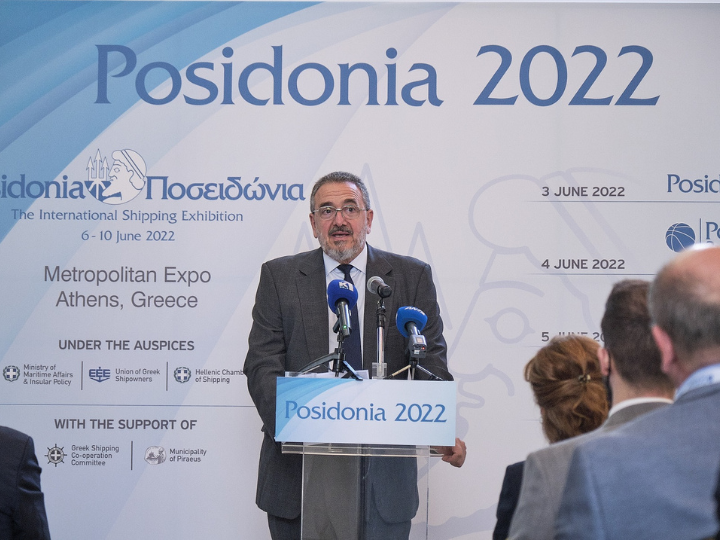by Dr. George D. Pateras*
Green shipping and how to get there have been dominant topics of discussion and reflection in recent years in the cycles of global shipping and the wider shipping community. The sustainable development programme adopted by the International Maritime Organization (IMO) calls for a 40% reduction in CO2 emissions by 2030 compared to 2008, and a 50% reduction in greenhouse gases by 2050, with the desired goal to reach up to 70%.
It is doubtful whether there are any optimists out there who consider these goals achievable. Although significant steps in terms of technology have been taken, we are still a long way from a viable solution to the problem within the set deadlines.
Shipping has undeniably contributed to the expansion of international trade and the improvement in humanity’s living standards. While transporting 90% of world trade, shipping generates less than 3% of human-induced pollutants, making it the most environmentally friendly transport system.
However, in the context of curbing climate change, shipping must also meet the great challenge of the survival of life on our planet. Shipping as a whole is in favor of this effort, but several issues have not yet been addressed, such as:
-Safety of new fuels. Some of the new fuels are highly hazardous and their use requires new strict safety rules.
-Sufficiency of new fuels. The current production of ammonia, methanol, biofuels and hydrogen will not be enough to meet global shipping needs, should their use as a marine fuel prevails.
-Networks and storage. Adequate infrastructure does not exist today.
-Financing. It is estimated that the cost for shipping decarbonization will exceed $3.3 trillion. Where will such funds come from?
-Manufacture and will also pioneer certification of new engines and systems.
-Speeding up the development of RES networks, so that green electricity can be used to supply shortsea ship batteries. Green electricity is also necessary for the production of green hydrogen. For instance, in the Netherlands floating wind energy breaks down seawater, producing green hydrogen that is then fed into a grid.
-Clarification of LNG policies. Is LNG a transitional fuel, is it banned, does it have a future? There are conflicting positions and views on the issue.Ships equipped with dual fuel engines have been built and are being built, in various combinations, but no one is sure that the technology chosen will be still applied in future.
In addition to the above, two unconventional solutions are also being discussed:
-Carbon Capture Storage (CCS). Its cons are related to solid waste disposal and storage, but it has the advantage of using diesel and conventional engines. It is being applied experimentally in container feeders.
-Nuclear energy. New engines are based on molten salt technology. In the event of a leak, the fuel is inactivated and the risk of diffusion of radioactivity is prevented. At the same time, the technology for nuclear energy accumulators is also evolving.
While shipping is still navigating uncharted waters, it has to maintain its ability to meet the needs of international trade, hoping that the weaknesses and shortcomings mentioned will be resolved within the current deadlines. .
The initiative taken by the HellenicChamber of Shipping (HCS) and the Association of Passenger Shipping Companies (SEEN) for the renewal of our shipping is now widely known. Having completed the first two stages, we are now working on the business plan and the proof of concept. The latter will be an intra-island coastal ferry powered alternatively by two sources:: hydrogen cell batteries and auxiliary diesel fuel.
We still have a long way to go until we take our final decisions and resolve all the outstanding issues, but I hope that in Poseidonia 2024 things will be better. I would also like to express my belief that Greek Shipping will be a pioneer, as it has always been, also in adapting to new requirements.
It has been said that technology is not treated with more technology, but without technology. I do not know if this applies to shipping, but I recalled when shipping was introduced to the option of controlling (opening/closing) hatch covers through digital commands by land. One could easily imagine the dreadful situation of a loaded bulk carrier’s hatch lids opening wn Sailing in the Atlantic in 10 B, as a result either a software error or an act of (cyber attack).
The magnetic compass and the sextant are the only necessary and reliable in ments for navigation; all other instruments are navigational aids, consulted by the captain but without relying on them. Human judgement on board should not be replaced by digital technology and automation. Any action must be decided on the spot by the officer in charge. In summing up, we should not forget that one of the most notable qualities of Greeks in shipping is their aptitude to improvise and contrive!
*President, Hellenic Chamber of Shipping (HCS)




 By: N. Peter Kramer
By: N. Peter Kramer
